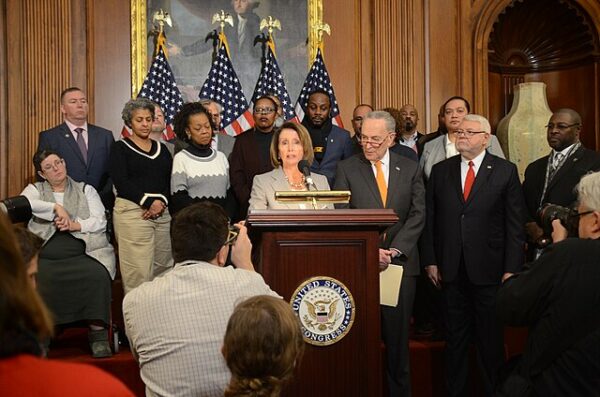The Democratic National Committee is embroiled in an internal reckoning and 25-year-old Vice Chair David Hogg has become its lightning rod. This week, the DNC’s Credentials Committee recommended throwing out the results of the February vice-chair election, citing procedural irregularities that allegedly disadvantaged three women of color. But for Hogg, the explanation rings hollow. The real offense, he says, wasn’t anything that happened on the ballot—it was what happened after.
Within weeks of taking office, Hogg announced that his political group, Leaders We Deserve, would spend $20 million backing primary challengers against incumbent Democrats in deep-blue districts. The plan wasn’t subtle. Hogg called out party elders for becoming “tools of the system they were elected to reform,” accusing them of retreating into risk-averse silence while Donald Trump reclaimed the White House. “We’re in a national emergency,” he said. “And too many Democrats act like it’s business as usual.”
That posture—confrontational, generational, and unapologetically insurgent—made Hogg a hero to some and a problem to many more. Behind closed doors, party veterans warned that his rhetoric risked weakening Democrats when unity was critical. And now, just three months after his election, Hogg finds himself fighting to keep the very seat he was chosen to hold, according to Fox News.
The official pretext for the challenge comes from Kalyn Free, a longtime party activist who filed a complaint alleging that the February vote violated gender equity rules embedded in the DNC charter. The Credentials Committee agreed and recommended a re-vote for both vice-chair positions. If approved, only candidates who advanced to the final round last time—Hogg, Malcolm Kenyatta, Free, Jeanna Repass, and Shasti Conrad—would be eligible to run.
But the context matters. Hogg didn’t arrive quietly. His candidacy was backed early by Minnesota Governor Tim Walz, who broke ranks with more cautious Democrats to endorse him as the future of the party. “He’s fearless,” Walz said at the time, describing Hogg as someone who had already stared down death and wouldn’t be intimidated by politics. It was a bold move—and a calculated one. Walz was betting that Hogg’s brand of Gen Z defiance could awaken a fatigued base and inject new life into a party caught flat-footed by Trump’s resurgence.
That gamble is now being tested. DNC Chair Ken Martin, who was elected the same day as Hogg and Kenyatta, acknowledged procedural errors in the February vote but urged members to approach the issue fairly. “The Credentials Committee has made its recommendation,” Martin said. “I trust our members will handle this matter justly.” Officially, the matter is about rules. Unofficially, it’s about rebellion.
Kenyatta, who also faces a potential re-election, has taken a more measured stance—rejecting the idea that Hogg is being targeted and dismissing talk of retribution as “nonsense.” “This is a complex issue, not a story about David Hogg,” he posted online, “despite his efforts to make it one.” But for many within the party, it already is. Hogg didn’t just win a seat—he declared war on the system that gave it to him.
Free, the complainant, insists that none of this is personal. “This was never about any individual,” she said. “It’s about ensuring the Democratic Party upholds the democratic principles we champion.” Still, it’s hard to ignore the symbolism: the party’s youngest elected officer, threatening to upend decades of seniority and incumbency, now faces possible removal on technical grounds.
All of it unfolds against the backdrop of Democratic uncertainty. With Trump back in power and the party’s favorability at historic lows, Democrats are stuck between two instincts—protect what remains, or burn it down and rebuild. Hogg represents the latter impulse: impatient with caution, allergic to compromise, and convinced that leftism is the only way forward.
[Read More: Church Refuses To Help Refugees For Insane Reason]











Every time I see this Hogg guy he reminds me of a young Adolf Hitler. Just draw a mustache on his picture and you will definitely see the resemblance. Then consider he political activities and policy and he becomes even more like Hitler. He has even picked his “scapegoats” .
Oh, you mean the hero of parkland, who actually ran to the other side of the building when it started?
He can always go back to being a fruit hustler.